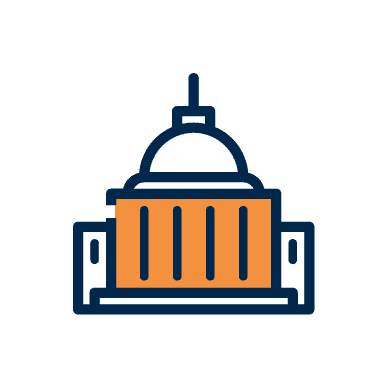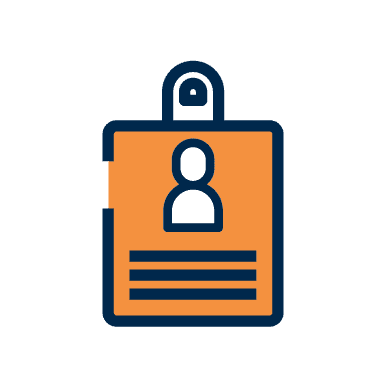Even though COVID-19 seems to be receding in the minds of many, it continues to be the source of significant law enforcement actions at the federal level. COVID-related criminal investigations and prosecutions, from a fraud perspective, appear likely for the foreseeable future.
As stated a recent Department of Justice issuance, “Throughout the pandemic, we have seen trusted medical professionals orchestrate and carry out egregious crimes against their patients all for financial gain,” said Assistant Director Luis Quesada of the FBI’s Criminal Investigative Division.
“These health care fraud abuses erode the integrity and trust patients have with those in the health care industry, particularly during a vulnerable and worrisome time for many individuals. The actions of these criminals are unacceptable, and the FBI, working in coordination with our law enforcement partners, will continue to investigate and pursue those who exploit the integrity of the health care industry for profit.”
On April 22, 2022, the Department of Justice announced criminal charges against 21 defendants, in nine federal districts, accused of participating in pandemic fraud schemes ranging from making counterfeit vaccination cards to selling fake homeopathic COVID-19 cures. It appears that these actions resulted in false billings to the federal government of more than $149 million. This 2022 announcement builds on the success of the May 2021 COVID-19 Enforcement Action which resulted in criminal charges being made against 14 defendants in seven federal districts for their alleged participation in various health care fraud schemes that exploited the COVID-19 pandemic and resulted in over $143 million in false billings.
Multiple federal agencies, including the FBI, HHS-OIG, and CPI/CMS, the U.S. Postal Inspection Service, Homeland Security, and the Inspectors General of the U.S. Postal Service Office, Department of Defense, Department of the Interior, Department of Labor and US Department of Veterans Affairs all participated in this most recent law enforcement action.
The source of funding being misappropriated was the $953 billion CARES Act Paycheck Protection Program (PPP) established in 2020 to assist struggling businesses when the pandemic first hit. The PPP offered low-interest loans to cover business costs. Some COVID-19 fraudsters simply submitted PPP claims using inflated staff numbers and payroll expenses while others developed more elaborate schemes. Within roughly the first year of the pandemic, the DOJ charged nearly 600 defendants in connection to COVID-19 fraud.
The alleged fraud schemes include:
- Forging physician orders for unnecessary unnecessary tests and equipment that were used to justify fraudulent Medicare claims for the benefit of co-conspirators, in exchange for which the defendant received payments for telemedicine consultations she never actually performed;
- Conspiracy to commit health care fraud and other offenses by clinical laboratory owners for allegedly plotting to fraudulently bill Medicare for over $214 million in lab tests and then laundering proceeds through real estate and luxury purchases;
- Conspiracy to defraud the U.S. and trafficking in counterfeit goods after allegedly selling hundreds of fake vaccination record cards for as much as $175 apiece to buyers and distributors in at least 12 states, disguising his activities by referring to them as restaurant cards or gift cards; and
- Participating in an alleged plot to sell a phony homeopathic COVID-19 cure and distribute fake vaccination cards, some of which were filled in using numbers from actual batches of COVID-19 vaccines
Owners of two separate medical clinics used data obtained at drive-through testing sites to submit claims for office visits that did not occur. Other defendants included a healthcare center CEO who intended to submit over $1.5 million in fraudulent Medicare claims for COVID-19 tests, and a U.S. Postal Service employee charged with the design and sale of 400 fake vaccination cards. Descriptions of each case are available on the Department of Justice website at: https://www.justice.gov/criminal-fraud/health-care-fraud-unit/case-summaries.
While some defendants in COVID-related fraud case have chosen to plead guilty, others have demonstrated a complete lack of remorse. In a case in Washington state, one manufacturer was charged in the multi-state distribution of fake COVID-19 vaccination record cards after allegedly telling an undercover federal agent that “until I get caught and go to jail, [expletive] it I’m taking the money, ha! I don’t care.”
In addition to the recent criminal charges against 21 individuals by the DOJ, the CMS Center for Program Integrity (CPI) also recently announced that it has taken an additional 28 administrative actions against providers for their alleged involvement in fraud related to the delivery of care for COVID-19, as well as other schemes that capitalized upon the pandemic.
As stated by Kevin Chambers, the DOJ’s Director for COVID-19 Fraud Enforcement,
“The scale and complexity of the schemes prosecuted [resulting in May 2022 charges] illustrates the success of our unprecedented interagency effort to quickly investigate and prosecute those who abuse our critical health care programs.”
Recognizing that the work ahead to address pandemic-related fraud was a long-term and significant undertaking, Attorney General Merrick Garland established the COVID-19 Fraud Enforcement Task Force in 2021 to marshal the resources of the Department of Justice in partnership with agencies across government to enhance efforts to combat and prevent pandemic-related fraud. This task force supports efforts to find and prosecute the most significant domestic and international criminals engaged in pandemic- related fraud as well as bolstering the coordination and information sharing capabilities of federal agencies with enhanced coordination and data analytics. This new task force is in addition to the DOJ Fraud Section which leads the Health Care Fraud Strike Force formed in 2007. The Health Care Fraud Strike Force maintains 15 strike forces in 24 federal districts and has been very successful since its inception, charging more than 4,200 defendants who collectively billed the Medicare program for nearly $19 billion.
The work to recover misappropriated federal funds intended to provide financial relief for struggling business during the pandemic (as well as to confirm that medical service claims paid under federal health care programs such as Medicare and Medicaid during this period were legitimately billed) is a long-haul process, requiring sophisticated analytics and a highly collaborative strategy among multiple federal and state agencies. In light of both the 2021 and 2022 DOJ take-downs, the health care industry will likely see ongoing efforts to identify and address the fraud of entities and individuals who took advantage of system vulnerabilities during a national emergency. However, as stated by the HHS Inspector General Christi A. Grimm, ““The attempt to profit from the COVID-19 pandemic by targeting beneficiaries and stealing from federal health care programs is unconscionable. HHS-OIG is proud to work alongside our law enforcement partners at the federal and state levels to ensure that bad actors who perpetrate egregious and harmful crimes are held accountable.”

































